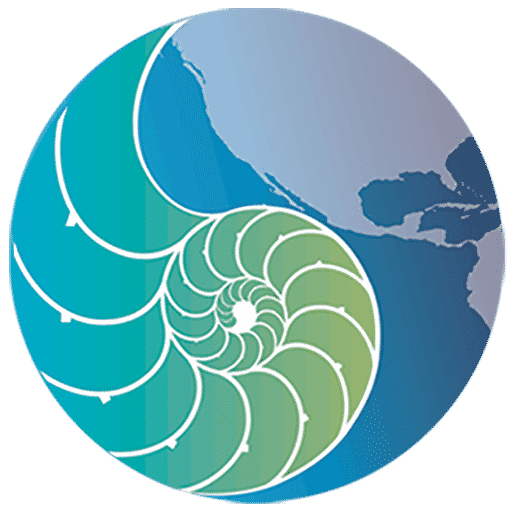Remembering Sasha & Ann Shulgin
Today marks the one-year anniversary of the passing of Ann Shulgin, a visionary whose influence continues to shape the world we live in. Alongside her, we also remember Sasha Shulgin, who departed on June 4, 2014. Together, they left an enduring legacy whose impact ripples far beyond their individual lives. Their groundbreaking work has served to deepen our understanding of consciousness and of the human experience.
The Life and Contributions of Sasha and Ann Shulgin
Sasha Shulgin, born on June 17, 1925, in California, was a visionary chemist, and it was through his wife Ann Shulgin that their collaborative work flourished. Ann Shulgin, born Ann Carol Grey, was a pioneer in her own right, providing psychedelic-assisted therapy with MDMA and 2C-B, compounds that Sasha synthesized, before they were illegal, to many in the San Francisco Bay Area using her expertise in Jungian psychoanalysis and contributing significantly to their joint endeavors.
Sasha earned his Ph.D. in biochemistry from the University of California, Berkeley, where his passion for exploring the potential of psychoactive substances began to take shape. It was during this time that Sasha and Ann first crossed paths.
Their meeting marked the beginning of a lifelong partnership that would shape the course of psychopharmacology. Together, Sasha and Ann embarked on a remarkable journey, driven by their relentless curiosity and shared fascination with the effects of psychoactive compounds on the human mind. Through their combined efforts, they synthesized and tested over 200 novel compounds, pushing the boundaries of knowledge and leaving an indelible mark on the field of psychopharmacology.
PIHKAL – Phenethylamines I Have Known and Loved
One of the most notable contributions of Sasha and Ann Shulgin was the publication of their groundbreaking book, PIHKAL. Co-authored by Sasha and Ann, PIHKAL stands for “Phenethylamines I Have Known and Loved.” This revolutionary work not only detailed the synthesis, effects, and experiences of numerous phenethylamine compounds through a developed system of self-experimentation but also showcased the deep personal connection the Shulgins had with these substances and one another.
Explaining the reasons behind his self-experimentation with the substances he synthesized, Sasha wrote in PIHKAL, “There is no animal model that has ever been developed or, as far as I can predict, will ever be developed, for the characterization and evaluation of a psychedelic drug. Thus, all discovery must use the human animal and I was, by default, that animal. Quite simply, as I developed new structures that might show some interesting action in the realms of thought or perception, I used myself as the experimental test subject to determine these actions”
PIHKAL was published by Transform Press, the independent publishing company Ann and Sasha founded in 1991 (now owned and led by Ann’s daughter Wendy Tucker), in order to ensure their research would not be lost or destroyed, remaining accessible and open to everyone.
TIHKAL – Tryptamines I Have Known and Loved
Building upon the success of PIHKAL, Sasha and Ann Shulgin extended their pioneering efforts with the release of their second book, TIHKAL, which stands for “Tryptamines I Have Known and Loved.” TIHKAL delved into the fascinating world of tryptamines, a class of compounds that includes well-known psychedelics like DMT, psilocybin, and LSD. Once again, the collaboration between Sasha and Ann brought together scientific rigor and personal anecdotes, providing readers with a comprehensive understanding of tryptamines, how to synthesize them, and their experiential effects.
Although Sasha and Ann were firm believers in psychedelic substances as tools for understanding the human mind, they lamented the reckless recreational use and ensuing prohibition of psychedelics in that it hindered the possibility of their legitimate use in psychotherapy.
In a 2007 MAPS Bulletin, Ann wrote, “I think that psychedelics are great spiritual tools, but like a lot of spiritual experiences, they can take you to very, very dark places, and you can spend quite a lot of time wondering if you’re going to get through some of these experiences. So, be careful and be very respectful of your mental, emotional, and physical health. Take care of your body, and don’t take a powerful drug or plant if you’re not well.”
The Future of the Shulgin Legacy
Sasha and Ann’s legacy continues through the tireless efforts of organizations such as the Alexander Shulgin Research Institute (ASRI), run by chemist Paul Daley, and the Multidisciplinary Association for Psychedelic Studies (MAPS), a non-profit spearheading the legalization of MDMA, a compound that Sasha synthesized, for the treatment of PTSD and The Shulgin Foundation preserving the Shulgin Farm and the legacy by promoting research, education and exploration in the realms of psychedelics, chemistry, and consciousness expansion. These organizations aim to promote research, education, and responsible use of psychoactive substances, carrying forward the spirit of exploration and understanding that defined the Shulgins’ work.
Further, we at Synergetic Press are proud to be co-publishers with Transform Press, having published The Nature of Drugs, Volume 1 in 2021, and more recently, The Nature of Drugs, Volume 2.
The Nature of Drugs series of books is based on a lecture series that Sasha Shulgin taught at San Francisco State University (SFSU). The full text was transcribed from the original lecture tapes recorded at SFSU in 1987 and will be published in three consecutive volumes. The series lays the groundwork for Sasha’s philosophy on psychopharmacology and society, what defines a drug, the nature of a person’s relationship with a given compound, and provides extensive examinations of dozens of compounds.
Additionally, we will be co-publishing Synthesis, a forthcoming collection of Ann and Sasha Shulgin’s writings and a companion to PIHKAL and TIHKAL.

